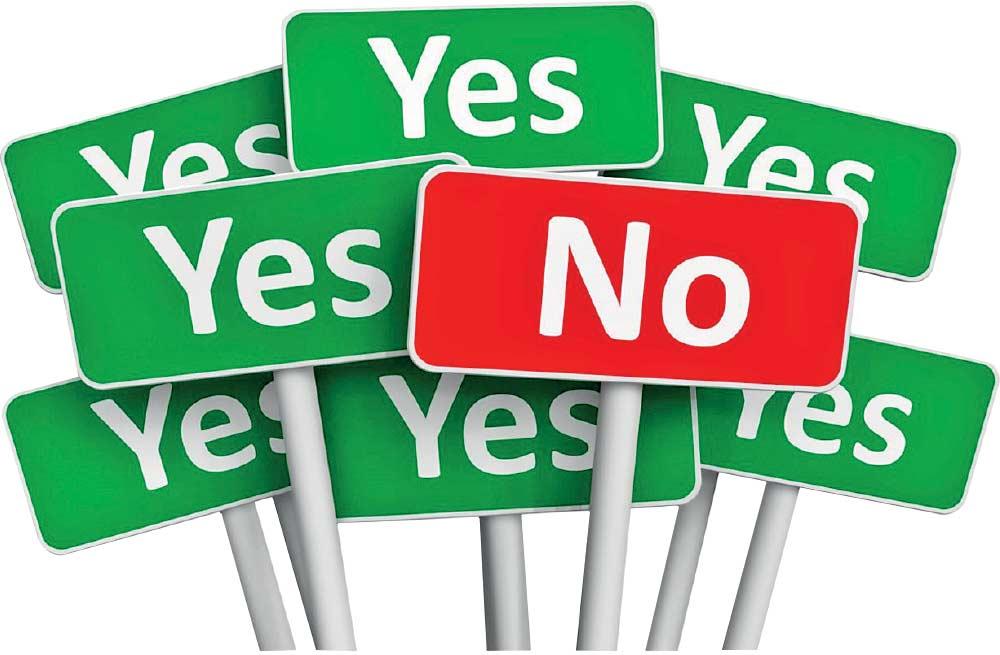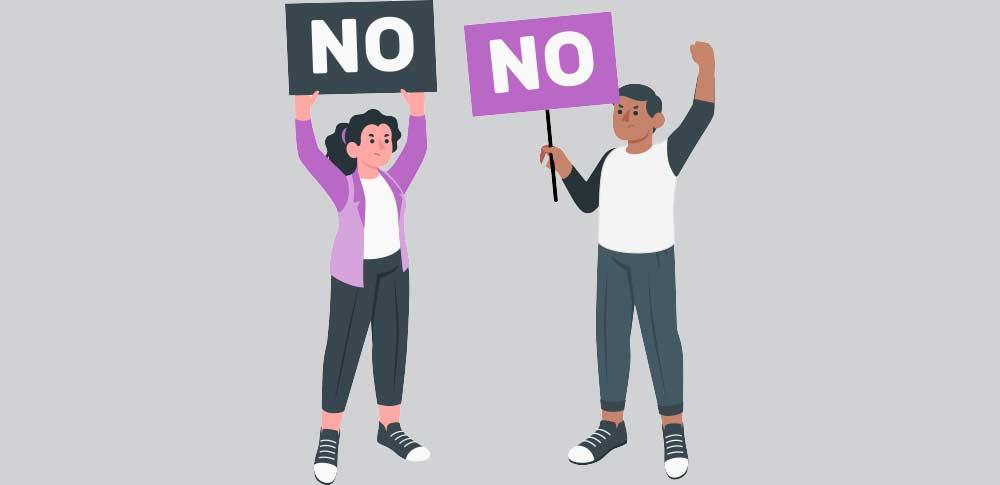Setting Boundaries in a Yes-Obsessed World
We live in a world where saying “yes” is often celebrated as a symbol of opportunity, openness, and success. Say yes to that new project. Say yes to the after-hours Zoom call. Say yes to every invitation, every request, every demand; until we’re left exhausted, overcommitted, and strangely disconnected from ourselves. In a society that glorifies hustle and equates availability with value, learning to say “no” is not only radical; it’s essential.

 From childhood, many of us are conditioned to seek approval. We learn that being agreeable pleases parents, teachers, and peers. As adults, this pattern often morphs into chronic people-pleasing
From childhood, many of us are conditioned to seek approval. We learn that being agreeable pleases parents, teachers, and peers. As adults, this pattern often morphs into chronic people-pleasing
01
Why “Yes” Is So Addictive
From childhood, many of us are conditioned to seek approval. We learn that being agreeable pleases parents, teachers, and peers. As adults, this pattern often morphs into chronic people-pleasing. In the workplace, a reputation for being accommodating can open doors. In social circles, being the “reliable one” wins admiration. But over time, these compulsive yeses become costly. Psychologists call this the “approval trap” where our self-worth becomes tied to external validation. Saying yes, even when we don’t mean it, makes us feel wanted and useful. But like any addiction, it leads to burnout. We begin to lose sight of our needs, our time, and our true desires.
02
The Cost of Constant Yes
Consider the quiet toll of the unchecked yes. You agree to help a colleague over the weekend, though you had planned a rare day off. You accept a dinner invitation out of guilt, knowing you’re too tired to be present. You take on another freelance assignment, even as your sleep suffers and your creativity wanes. In the short term, these actions may seem harmless, even noble. But over time, they create a pattern of self-abandonment. By constantly saying yes to others, we are saying no to ourselves. The consequences are not just emotional. Research shows that chronic overcommitment leads to increased stress, anxiety, and physical illness. It diminishes productivity, hampers creativity, and erodes our most precious resource: our energy.
03
Reclaiming Power Through “No”
“No” is a complete sentence. And yet, for many, it feels incomplete, harsh, even rude. But when wielded with intention, “no” becomes a powerful tool of self-preservation. It marks the boundary between what we are willing to give and what we must hold sacred. Setting boundaries isn’t about building walls, it’s about honouring our limits. It’s choosing where our time, attention, and energy go. It’s about recognizing that not every opportunity is meant for us. Not every request deserves our involvement. Not every crisis is ours to fix. When we begin to say no without guilt, we reclaim control over our lives. We step out of reaction mode and into intention. And we begin to build a life that reflects our values, not just our obligations.
04
The Art of the Graceful No
Of course, saying no doesn’t have to be brash or confrontational. There is an art to declining with grace and firmness. Here are a few techniques:
- The Gentle Decline: “I really appreciate the offer, but I’ll have to pass this time.”
- The Honest Boundary: “I’m at capacity right now and wouldn’t be able to give this the attention it deserves.”
- The Delayed Response: “Let me think about it and get back to you.” (This buys you time to check in with yourself rather than automatically agreeing.)
The Redirect: “I’m not the best person for this, but you might consider asking X.”
A graceful “no” doesn’t burn bridges. It builds respect, both from others and from within yourself.
05
Why Saying No Is an Act of Self-Respect
At its core, saying no is an affirmation of your self-worth. It communicates that your time is valuable, your energy is finite, and your priorities matter. It means you are no longer available for self-sacrifice as a default setting. Saying no also gives others permission to do the same. When we model healthy boundaries, we normalize them. We create a culture where rest is respected, time is treasured, and authenticity trumps overextension.
06
Navigating the Guilt
Even with the best intentions, saying no can trigger guilt, especially for those socialized to be caregivers, nurturers, or peacekeepers. That guilt is not a sign that you’re doing something wrong. It’s a sign that you’re doing something new. Think of guilt as growing pains. It surfaces when we shift from people-pleasing to self-honouring. The discomfort is real, but temporary. Over time, your brain will begin to associate saying no with freedom, clarity, and empowerment rather than conflict.
07
The Surprising Upside
Here’s the paradox: the more you say no to what doesn’t serve you, the more you can say yes to what does. No to the unnecessary meeting means yes to focused work. No to the draining social obligation means yes to restorative time alone. No to the wrong client means yes to the right opportunities. Boundaries create space. Space to dream. Space to think. Space to breathe.
In that space, life begins to feel less like a constant negotiation, and more like an authentic expression of who you are and what you value.
08
A New Measure of Success
Let’s redefine success not as how much we can juggle, but how clearly, we can choose. Not by how often we say yes, but by how well we say no. Let’s celebrate those who guard their time fiercely, who honour their wellbeing unapologetically, and who live by design, not default. Because in a world that demands our constant attention, saying no is an act of rebellion, and self-love. It is the boundary that protects your joy. The pause that makes room for meaning. The decision that says: I matter too.
Start small. Say no to one thing today that you’d normally accept out of guilt or fear. Notice the discomfort, and also the relief. You are not here to be everything to everyone. You are here to be fully, fiercely, and freely yourself. And that begins with the word no.













